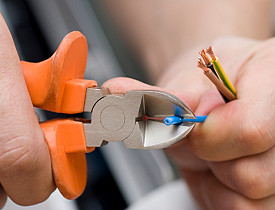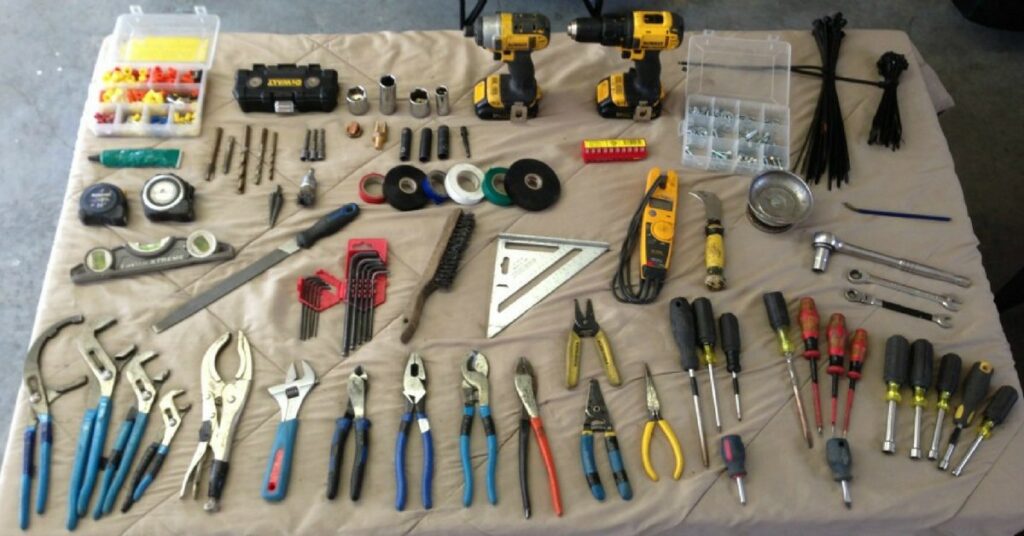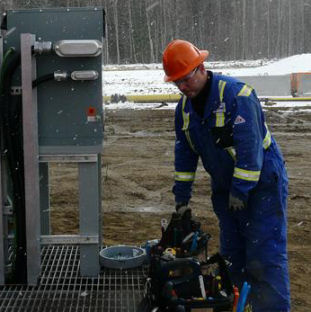Questions to Ask an Electrician Before Hiring
Finding the right electrician can be as much a matter of safety as getting your money’s worth, since electrical problems are among the leading causes of house fires. Electrical work must be done by the book — specifically, the National Electrical Code book — and follow all code requirements of your city’s building department.
Are you licensed?
Electricians are required to be licensed in most states and municipalities, so don’t consider one who isn’t properly licensed. There are two basic levels of licensure: A master electrician has at least two years of professional experience and is licensed for both design and installation of electrical systems. A journeyman is licensed for installation only. In some areas, journeymen must work alongside masters.
Are you insured?
Certainly one of the deal-breaker electrician questions, given the potentially high liability for this work. Electrical contractors should carry at least $500,000 in liability and workers’ compensation insurance.
What kind of work do you do most?
Like many contractors, electricians often specialize in one area or another. As an example, if your project involves finished spaces, look for someone who specializes in remodels as opposed to new construction.
What special training/experience do you have for this kind of work?
This should be one of your electrician questions if your project calls for specific expertise, such as installing voice/data cabling, home automation systems or solar equipment. Even if another contractor handles the specialty stuff, it’s helpful if your electrician has experience working with those systems and protocols.

things to remember when hiring an electrician
Electrical work is tricky and dangerous to figure out on your own. The slightest error can lead to a short circuit or fire, so it’s a good idea to hire an electrician, even if it’s for the smallest of jobs.
Are they able to self-certify their work?
Most electrical work in the home needs to be done in line with legal standards known in the trade as “Part P”, which means it must be inspected and approved either by the Building Standards department of your local authority, or by the tradesman who carries out the work and is able to self-certify their work. In order to self-certify, the electrician must be registered with a competent persons scheme. These include BSI, ELECSA, NAPIT, NICEIC, STROMA, SELECT and TrustMark.
Read previous, relevant reviews
Read through their MyBuilder reviews. Being positively reviewed is not enough in and of itself—you need to check if they are relevant to the job you need done. Read through previous reviews to confirm that your potential electrician has been well-reviewed for jobs similar to yours. Check also for reliability and punctuality.
Agree to a quote
Before you hire, make sure you are agreeing to a quote and not a rough estimate. The quote should include details about the job, concrete prices, and a payment schedule that outlines a deposit as well as a payment calendar. The schedule is particularly important, since it is what avoids misunderstandings down the line.
Don’t pick the cheapest option
When considering different quotes from your shortlisted electricians, don’t pick the cheapest one. Read through the quote carefully to ensure that you end up picking the best person for your job. Anything that sounds too good to be true usually is.

Electrical Tool Kit List: What You’ll Need, and What You Won’t
Assembling and maintaining an electrical tool kit with the proper tools and gear is one of your main responsibilities as an electrician. With increasingly diverse electrical components, making sure you have the right tools in your kit is essential.
Many new electricians may feel that they need to buy top of the line tools, but if your tools are sturdy and in good working condition you don’t have to spend a fortune. Most employers will provide a list of hand tools, while some may even provide you with a basic starter kit. In either case, the following list will give any new electrician a good starting point.
What to Carry in a New Electrical Tool Kit is Important!
With the new electrical components, maintenance and repairs these days, making sure you have the right tools in your kit is the essential. The electrician designs, installs and maintains electrical systems. Many first time rookie electricians feel that they need to buy top of the line tools, but as long as your tools are sturdy and in good working condition you don’t have to spend a fortune. It is recommended to start with a basic electrical tool kit set up.
Perfect Electrical Tool Kit For New Electricians
Someone once said “It’s always recommended that you treat your new electrical tool kit like a woman would treat her purse. Always know where it is and treasure its contents even when lending something.” Apprentices, as well as some professionals can leave tools behind, and if they move from location to location, never get their tools back.
This raises the requirements for an electrical tool kit. You must be able to:
Install, test, assemble or maintain electrical equipment, wiring, appliances and fixtures using power and hand tools.
Diagnose malfunctioning machinery, systems and components, find the cause and correct it with hand tools and test equipment.
Be able to correct circuit breaker wires or transformers.
Do inspections of equipment, components and other electrical systems to find hazards and defects in compliance with all codes. Advise management about the safety of their equipment.
Be able to plan layout as well as installation of all electrical wiring, fixtures and equipment based on the job specifications and codes.Train or direct workers to maintain, install or do repairs on equipment, wiring and fixtures.
Follow blueprints or prepare sketches that determine where the wiring and equipment is located to insure safety and building rules are being observed.
Be able to use the variety of tools in their electrical tool kit, such as measuring devices, power construction equipment, and testing equipment.
Install a ground lead and connect motor power cables.
Have business management duties knowledge for preparing reports, maintaining records and equipment supplies.
Know how to repair wiring, equipment and fixtures with power and hand tools.
Work from scaffolds, roofs and ladders to repair, install, or maintain.
Build complete tray runs.
Cut and mount various electrical equipment.
Place piping or tubing inside partitions or walls and place wires or cables in complete circuits between boxes.
Fabricate or construct parts to specifications using hand tools.
Attach small plastic or metal boxes to the wall for home electrical outlets or switches.
Be able to do physically demanding jobs such as trench digging to lay conduit wires as well as lifting and moving heavy objects. Safety on the job is critical and even simple ladder safety needs your attention.
Provide assistance in emergencies by knowing how to operate generators and floodlights.
Maintain an up-to-date electrician’s license or ID card that meets government regulations.

Good Reasons to Study Electrical Engineering Abroad
Quick: imagine a life without electricity. You can’t even begin imagining it, right? And I mean that literally: you can’t start imagining, because you can’t read this article, because you don’t have a functioning computer or smartphone to read it on.
It’s easy to get your first Electrical Engineering job
Graduates of engineering schools start Electrical Engineering careers fairly easily because most employers search for fresh minds with good training. They are glad to get young people they can mould to their own specific needs and turn them into experts. This is also the reason why electrical engineers are the most valued on the job market.
You can work in another country after graduation
Being an electrical engineer means having a lot of job opportunities in countries all around the world. The laws of math and physics are universal, and your gained knowledge doesn’t limit you to only the country you studied in.
Electric power won’t be your only focus
Being an electrical and electronics engineer doesn’t mean you will work your whole life plugging and unplugging electronics, or just designing electronic circuits.
Study at top Engineering schools
The best schools in the world provide top-quality Electrical Engineering degrees. You’ll learn the secrets of the trade from the best international professors, in classes equipped with top-notch technology. This top-level education will help you develop your engineering skills to the next level.

Electrical Safety Tips
Working with electricity can be dangerous. Engineers, electricians, maintenance personnel, and others work with electricity directly, including minor electrical repairs to work on cable harnesses and circuit assemblies. Office workers, retail, hospitality, contractor, restaurant, and other employees work with electricity indirectly and may also be exposed to electrical hazards.
Normal wear on extension cords can loosen or expose wires. Cords that are not 3-wire type, are not designed for hard usage, or that have been modified increase your risk of contacting electric current and receiving an electric shock.
Follow these tips when using devices powered by electricity:
Do not modify electrical cords or use them incorrectly.
Use factory-assembled, UL-Listed cord sets and only 3-wire extension cords.
Use extension cords only for light-duty, temporary use (two weeks maximum). Plan to hard-wire items that will be powered on a long-term basis.
Remove cords from receptacles by pulling on the plugs, not the cords.
Visually inspect all electrical cords before use.
Remove from service any cords that are frayed, cut, missing ground prongs, or have exposed wiring.
Do not run extension cords from one floor level to the next or through doorways where doors can be closed onto cords.
Use only GFCI outlets in wet areas, near sinks or tubs, or where there is a potential for liquids and electric devices to be used.